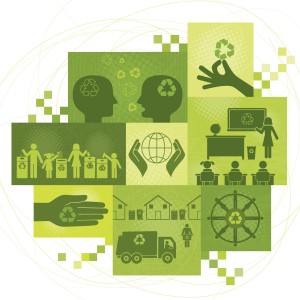Municipalities, waste management companies and recycling processors are joining together to find innovative and convenient ways to expand recycling. Curbside recycling is one area that municipalities are testing to see if recycling increases if curbside is used more. But the questions remain: What should be recycled at the curb and what should be reserved for drop off at recycling centers? What is the magic formula for increasing recycling at the consumer level?
Call2Recycle® research found convenience was a key component of ...
Read MoreDEC
 One of the goals of extended producer responsibility (EPR) is to provide funding, on the front end, for the disposal and recycling of products that are potentially harmful to the waste stream or may simply be a burden to handle. Those fees, commonly known as “eco-fees”, may then be passed down to the purchaser either by being embedded in the product’s price or as a separate visible line item at ...
One of the goals of extended producer responsibility (EPR) is to provide funding, on the front end, for the disposal and recycling of products that are potentially harmful to the waste stream or may simply be a burden to handle. Those fees, commonly known as “eco-fees”, may then be passed down to the purchaser either by being embedded in the product’s price or as a separate visible line item at ...